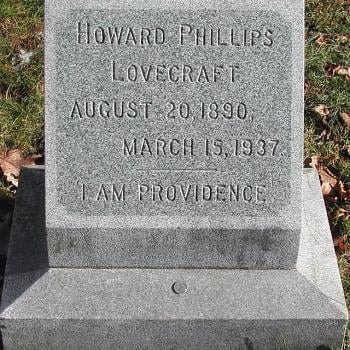Lectionary Reflections
Proper 16, Tenth Sunday after Pentecost
Matthew 16:13-20
August 21, 2011
The Confession of Peter
Peter's confession and Jesus' passion prediction and teaching about cross-bearing mark a watershed moment in the plot of both Mark and Matthew. From this point on there is no turning back for Jesus, for Peter, or for us, if we would be disciples of the Messiah.
In Mark's version of Peter's words (Mk. 8), they are not presented as the first expression of messianic faith. Rather, the confession in Mark is the occasion for new teaching concerning the suffering of the Messiah. In John's gospel, Andrew announces, "We have found the Messiah" before Peter even meets Jesus (Jn. 1:41).
Matthew attributes breakthrough significance to Peter's confession. He presents it as a fundamental divine revelation of who Jesus is. Peter is able to make this affirmation about Jesus' identity because God has enabled him to recognize Jesus as "the Messiah, the Son of the living God." "Flesh and blood has not revealed this to you, but my Father in heaven" (Mt. 16:18). In Matthew's gospel this is the point at which Jesus "names" Peter. In Mark's gospel this occurs when Jesus calls him (Mk. 3:16). Likewise in John's account, it occurs at their first encounter (Jn. 1:42).
Jesus names Peter "stone" or "rock" (Greek, petros). In Ephesians (2:20) the apostles and prophets are together called the foundation of the church. But in this passage Peter is marked as the church's foundation. There seems to be a consistent tradition in the New Testament supporting the foundational role for Peter that in Matthew's account begins here at his confession. (See Lk. 22:32; 1 Cor. 15:5; Gal.1:18.)
What does that role really mean? The words Jesus speaks to Peter in verses 17-19 appear only in Matthew and are somewhat mysterious and bewildering. In the first place, how does Jesus know that after his death the church will spring up?
Some have asked, how could the historical Jesus have spoken this saying? They reason that he could not possibly have anticipated the institutional church that developed after his death and resurrection. The verse probably reflects the influence of Matthew in speaking to that church.
The word used for church (ekklesia) was used in the Old Testament to refer to 'the people of God,' 'the assembly,' or the 'congregation.' The Essene community at Qumram used it to refer to themselves, a congregation, which chose to separate from the corrupt political and religious world to be faithful to God's covenant. (NCBC, 261) So Jesus in referring to his followers as an ekklesia probably meant the community of the faithful that would persevere in his teachings, as his influence lived on following the fate he felt awaited him.
Another bewildering aspect of these verses is Jesus' statement that the gates of Hades will not prevail against the church. The expression is a poetic way of describing the power of death (Is. 38:10). The congregation of the new covenant will persist into the age to come despite the efforts of the powers of darkness to destroy it.
The Keys to the Kingdom
Yet another question many readers have is what are these mysterious "keys of the kingdom of heaven," and what is Peter authorized to bind and to loose? Countless jokes and stories depicting St. Peter as the gatekeeper of the Pearly Gates have their origin in this verse. The keys are a symbol of Peter's authority as a leader in the Church after the Resurrection. Binding and loosing refers to Peter's authority to enforce the discipline of the Church, laying down binding rules and exempting people from them (Mt. 18:18). Peter was the supreme guardian of the tradition of Jesus' teachings and was authorized to make rulings about such matters as divorce and Sabbath observance.
Roman Catholics understand their bishops of Rome to be filling and extending the authoritative role Jesus here conveys to Peter. However, the role of Peter is here understood as unique in scope and time. It happens at a specific point in God's history and is not repeatable.
When we picture Peter holding a set of keys invested with the authority to admit or refuse admittance to the kingdom, our minds tend to dwell on the negative part of his job description. What about the joyful, invitational function implied in Jesus' words? Another image from Peter's life comes to us from Acts. Peter is the chief missionary of the Easter message. He has the joyful task of leading many into the kingdom through his preaching.




